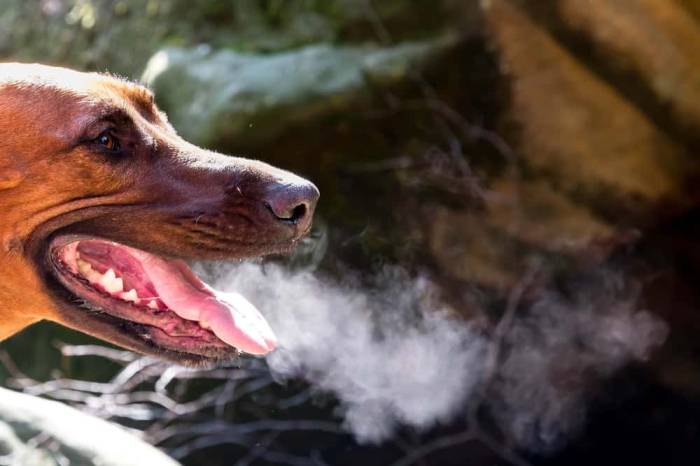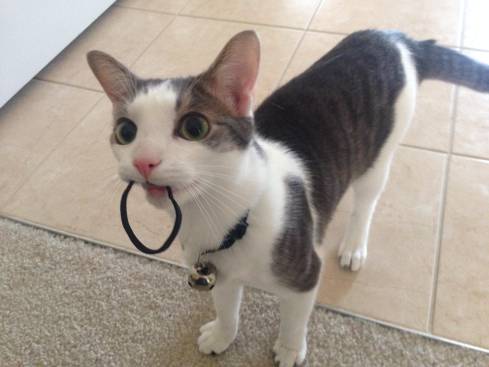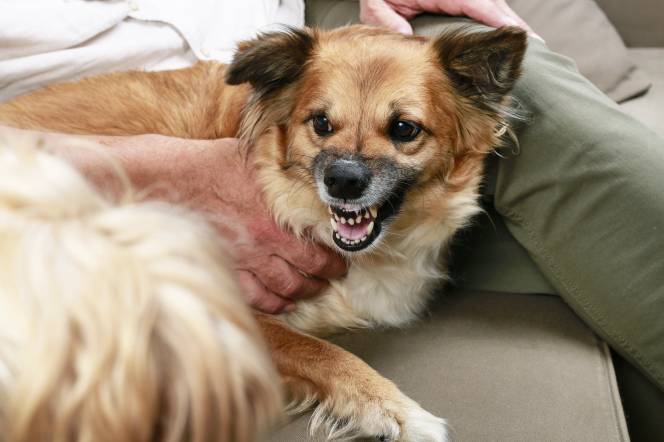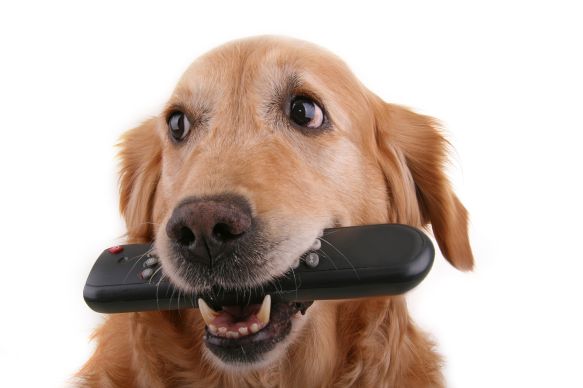As part of your dog’s grooming regime, regular teeth brushing should keep any ‘doggy breath’ at bay. But what happens if your dog’s breath suddenly starts to smell really bad?
Connect with a verified veterinarian in minutes. Licensed vets are available 24/7 to answer your questions. No need to worry about your furry family member.
Has your dog’s breath begun to smell like burnt rubber? Are you worried this could be a sign that your dog is sick? If so, then you’ve come to the right place. We understand it can be scary when your dog develops a symptom of this kind.
In this article, we’ll take a look at what can cause a dog’s breath to smell like burnt rubber and what you can do to help your dog. Let’s get started!

First Check This!
Is there a chance your dog could have encountered a skunk? Many pet parents describe the smell of skunk spray as similar to the smell of burned rubber. And with more skunks living in urban areas, it’s entirely possible for your dog to have been around a skunk and gotten sprayed.
In this case, while your dog’s breath may smell like burned rubber, his entire body probably smells the same way. If your dog has been licking the place that was sprayed, the smell could be transferred to his mouth, too.
So, this may be the reason your dog’s breath smells like burnt rubber. Even so, there are some other reasons your dog’s breath may smell foul.
Other Causes of Burnt Rubber Smell in Dog’s Breath
There are some underlying health issues that could also cause a dog’s breath to smell like burnt rubber, including:
Kidney disease: can cause a dog’s breath to smell horrible. This is because when the kidneys are not able to function correctly, waste products build up in the dog’s system which is known as . As the waste products build up, the dog’s breath will start to smell foul and will be accompanied by other symptoms, as well, such as changes in thirst and appetite.
Coprophagia: some dogs love nothing better than eating the poop of other animals. This can cause the dog’s breath to smell like poop or even like burnt rubber.
Anal gland issues: Dogs that excessively lick their anal glands may have foul-smelling breath, due to the scent-marking secretions that come from here. Your dog’s anal glands might need expressing or he could have an infection causing discomfort.
Oral tumors: can cause a dog’s breath to smell like burned rubber or even a sewer.
Dental issues: such as rotting teeth, abscesses, and gum disease can cause a dog’s breath to become very foul.

Review symptoms, medications & behavior to keep your pets healthy with a Vet Online in just minutes.
Ask a Vet Live NowHow to Help Your Dog
As you can see, there are a number of health issues that can cause a dog’s breath to smell bad. If your dog wasn’t sprayed by a skunk and you can’t determine the cause of the burnt rubber smell, then it’s best to get your dog an appointment with the vet.
The vet will be able to make a diagnosis and help treat the underlying health issue that’s causing your dog’s bad breath. Some of the conditions described are easier to cure than others. Your vet will discuss the options with you and the best course of action for your pet.
Connect with a verified veterinarian in minutes. Licensed vets are available 24/7 to answer your questions. No need to worry about your furry family member.

Rebecca MacMillan, BVetMed BSAVA PGCertSAM MRCVS
This article has been reviewed and approved by an independent Veterinarian: Rebecca is a companion animal vet who has always had a passion for writing and client communication. Since her graduation from the Royal Veterinary college in 2009 she has gained a wealth of experience in first opinion small animal practice, in both clinical and managerial roles. She currently works in the South West and deals with a variety of routine and emergency appointments, but particularly enjoys medicine cases. Outside of work and writing, she enjoys spending time with her family, including her bouncy flat coated retriever George!
Review symptoms, medications & behavior to keep your pets healthy with a Vet Online in just minutes.
Ask a Vet Live Now



